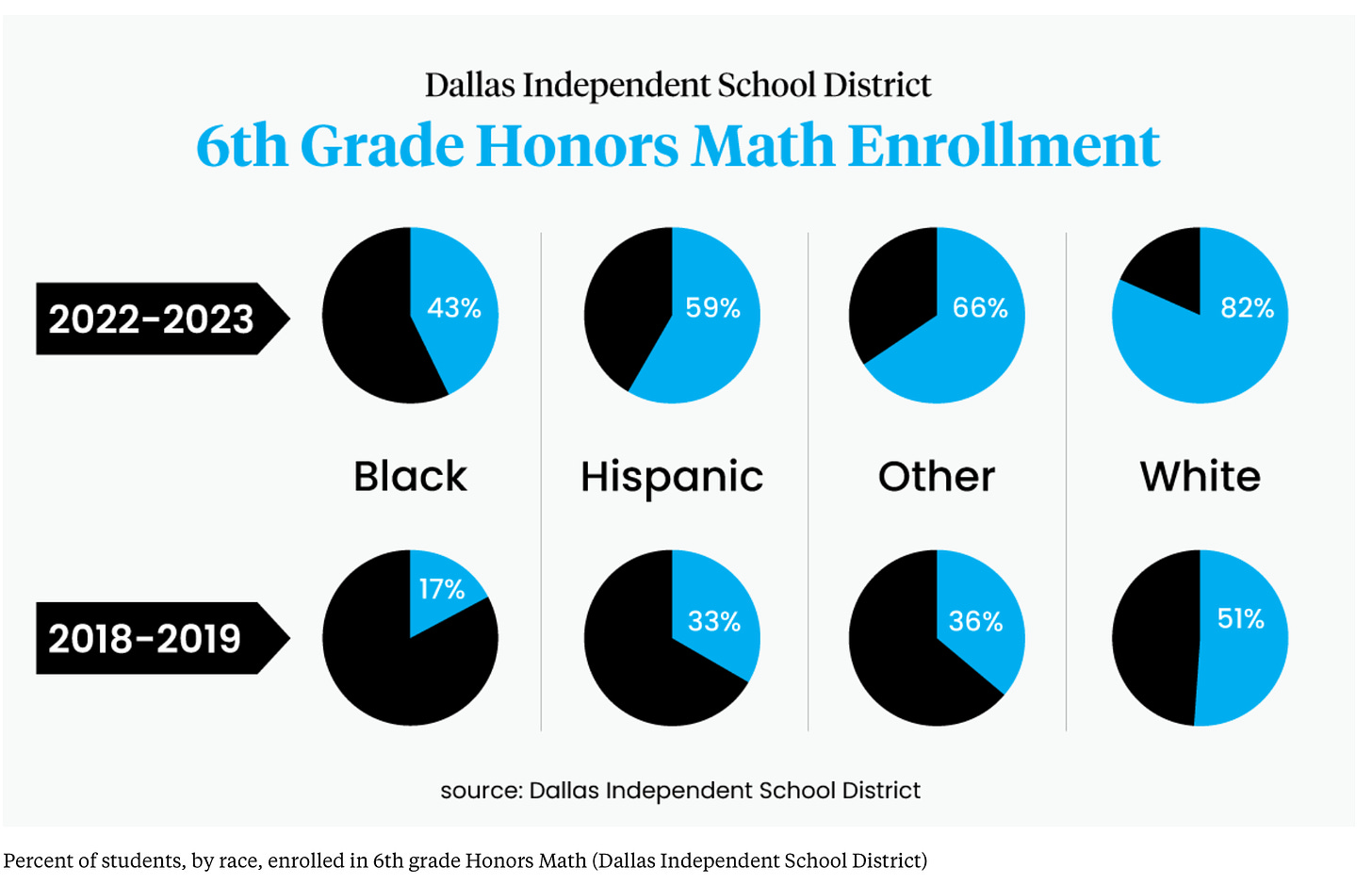Read time: 12 minutes
Can we NIMBY cars instead of houses?
An idea that might be dumb but could be great
I have an idea that I think is probably good but might be terrible. Expressing uncertainty is generally considered bad column-writing, but something I really liked about old-school blogging was the ability to think out loud at greater length than a tweet, so I’m gonna do it.
Despite the overwhelming evidence that regulatory barriers to housing supply are the key problem of housing affordability, some people on the internet continue to dispute this in terms that I find increasingly abstruse and incomprehensible. And when I look at something like Maryland Governor Wesley Moore’s great housing rhetoric paired with just-okay housing policy (here’s some excellent thoughts on how to improve it), I worry that policymakers are starting to take these weird theoretical objections too seriously. I really think people considering the promise and peril of housing reform would do well to log off, ignore the Marxist geographers, and talk to a normal person who doesn’t like development — because that person is going to tell you that he is worried about traffic.
I’m of two minds about this objection.
On the one hand, it’s absurd for a great nation to be kneecapping its ability to enjoy rapid economic growth and rising living standards out of fear of traffic jams. It’s doubly absurd because there is actually a well-known solution to traffic jams — congestion pricing, with the revenue used to offset other taxes that governments are collecting anyway.
On the other hand, the nice thing about the traffic jams objection to more housing is that it’s not grounded in some loopy theoretical account of how the world works. It is, in fact, true that if more homes get built in your town, the traffic will get worse. Even if your town has a really great transit system and all the new housing is built next to train stations, that new housing will generate more than zero additional car trips. That is just a true fact about the world.
So here’s my (probably great, maybe terrible) idea: Why can’t we address the problem straightforwardly? Instead of making it unreasonably expensive and inconvenient to add new housing to in-demand areas, couldn’t we make it expensive and inconvenient to add new cars? Unlike my “congestion pricing everywhere” plan, this is not optimal technocratic policy, but it could be a lot more politically tractable. And if it were widely adopted, I think it could end up leading people to the enlightened conclusion that if drastic deregulation of housing supply were done broadly, it actually wouldn’t generate dramatic amounts of new traffic.
One part of this I feel very confident about, but another I’m more uncertain on.
Cities should manage parking more cynically
Here’s where I have a greater degree of certainty.
More and more places around the country are adopting the advice of Donald Shoup in his masterwork “The High Cost of Free Parking” and moving away from regulatory requirements to include parking in new development. One reason that I think this reform is catching on is that once requirements are dropped, it’s clear that when there genuinely is a lot of market demand for off-street parking, you don’t need to require it. But allowing developers to skip it on occasion can get a certain number of projects off the ground in a beneficial way. Of course, the whole reason places started mandating off-street parking is that people who are already living in a community enjoy their easy access to cheap parking spaces and worry that if new residents come in, they’ll lose their precious street parking.
The orthodox Shoupian prescription here is that street parking should be priced at market rates so that it’s always readily available, and the revenue should be re-invested in making the streets nicer. Win-win.
I think that in practice, this is a hard sell. People here in DC who already have their cheap Residential Parking Permits (RPP) enjoy having them. They don’t want to pay more for them, and they don’t want to give up parking spaces. And I think the urbanist community in this town should give up on our longstanding quest to raise the RPP fees and actually do the opposite:
Let everyone who currently has a permit keep their permit, in perpetuity, for free.
Stop issuing new permits.
Let permit-holders sell their permits.
Eliminate all regulatory requirements for off-street parking.
The point of (1) and (2) is that it lets you do (4) while completely eliminating the objection that (4) is going to cost the incumbent RPP-holders. New housing will not compete for street parking because new residents just won’t be allowed to get RPPs. If they want to park, they either need to find a place that has off-street parking or else they need to pay for a space in a lot or garage someone else owns. And then there’s (3). The other thing newcomers could do is is buy your RPP from you. You could be selling your RPP because you’re moving elsewhere. Or you might decide to downsize from a two-car to a one-car household and make some money. Or you might be like me and Kate, who have an RPP and an off-street parking spot, and decide to give up the RPP for money.
The great thing about this is that while it’s not “fair,” it still strikes me as more fair than making it impossible for new people to move to the city. And even better, it creates direct financial upside for the average citizen to support more housing in their community. There is, of course, tons of variation in how different towns handle their street parking, so this idea that I outlined specifically for DC can’t necessarily be applied in exactly the same way to other places. But I think the underlying principle does generalize: Let incumbent residents lock in a favorable parking situation, and make access to that parking situation something that the incumbents are allowed to trade or sell. That generates lots of win-win opportunities. The question is whether you can apply this not just to parking, but to cars in general.
Expensive cars > expensive homes
In Singapore, if you want to drive a car you need a Certificate of Entitlement. These are purchased at auctions that are held annually, and a COE is good for 10 years. Because Singapore is both rich and densely populated, the COEs are expensive. The overall system is a little bit convoluted, but the upshot is that the market price of a COE generally exceeds the price of car (at least the price of a normal person car).
In practice, a huge share of the cars on the road in Singapore are expensive luxury models precisely because the COEs are so expensive. Only people who are some combination of really rich and really into cars bother to get them.
Now, obviously, if you proposed a system like that in an American state, you would be killed by an angry mob. But could there be a way of doing something broadly similar and making it really expensive to get a car — but only for newcomers?
I went to Los Angeles twice last year, and it’s clearly a desperately under-housed city. Last fall, Mayor Karen Bass issued Executive Directive 7, which mandated a huge amount of regulatory and permitting streamlining for new affordable housing developments. But here’s the catch: To qualify, the project needs to be 100 percent “affordable” (i.e., rents below market rate). Normally, a 100 percent affordable project would be built because it’s subsidized by public money. But ED 7 projects don’t get any subsidies. So on its face, ED 7 sounds like a way of “doing something” on housing without anything actually happening. But as Ben Christopher wrote on February 7, projects are actually getting built.
In part, that’s because California affordable housing projects are normally expensive to build because the subsidies come with union wage requirements. If you take away the subsidy, you also take away part of the cost. And when you add in the regulatory relief, apparently some projects pencil out. That’s great, though local observers I’ve chatted with seem to disagree as to whether Bass intended this to happen.
The subtext to all of this, though, is that Los Angeles has just so much unmet housing demand that building projects can come to fruition under really freaky circumstances. Clearly, Los Angeles could generate a lot more construction if they stuck with ED 7 and watered down the affordability requirements to something more reasonable or even eliminated them entirely. And just the sheer quantity of new units would do a lot for affordability. The problem is that, as I learned on my two trips to LA this year, everyone in Los Angeles is obsessed with the housing crisis but also obsessed with how there’s too much traffic. That’s a perfect storm for virtue-signaling gestures designed to “encourage” affordable housing without actually generating much housing. But what if the city adopted a modified Singapore Plan, and constrained the supply of new cars rather than new homes?
How it might work
Imagine LA County adopted a massive set of housing reforms:
ED 7-style express permitting for all projects.
Townhouses allowed in all single-family zones.
Tall apartments allowed near all transit stops.
Something like Florida’s “Live Local” initiative to allow multi-family housing in commercial corridors.
Now pair these reforms with a rule that says everyone in LA County who already has a registered vehicle gets a COE in perpetuity for free. You can sell your COE if you want. You could also lose your COE for committing crimes or repeatedly breaking traffic laws, and the County would annually auction off the forfeit COEs to new buyers. New housing would be very unconstrained, but new cars would be extremely constrained.
This is clearly going to do a lot to cool housing demand, since most people want cars!
That said, precisely because Southern California is such a nice place to live and because cars are so useful, a person could earn a lot of money selling their COE. Surely some multi-car households would be tempted to cash in. Some low-income people would take the money and ride the bus. Some low-income people would take the money and move to Phoenix.
But the other thing is that despite its (deserved!) reputation as an overwhelmingly auto-oriented metro area, Greater Los Angeles actually has a bunch of walkable areas. It has a fairly extensive mass transit system that few people ride. Nobody likes taking a bus and then transferring to another bus to get to their destination. But Southern California is a dramatically more pleasant place to wait for a bus (or take a long bike ride) than Chicago or Boston. The fallacy behind LA Metro is that the county’s residents were willing to spend a ton of money to construct a transit system that they hoped someone else would ride, thus leaving the freeways less congested. But riding the metro from Downtown to Santa Monica is still slower than driving most of the time, even though the traffic on the ten is pretty bad.
The point, though, is that the infrastructure for a car-free or car-light lifestyle exists, it’s just not very desirable right now — there’s no good reason to live like that. But in a world where housing is cheaper and cars are more expensive, things change:
House in LA + car in LA would cost about the same as what it costs now.
House in LA + no car in LA would become dramatically cheaper than it is now.
Under the circumstances, more people would start to choose option (2). Some of them would be the people who currently live there, and some of them would be newcomers, but either way it wouldn’t be nobody. Existing residents who like things just the way they are could keep on keeping on with no real impact to their transportation options. But state and local governments would see their property tax, sales tax, and income tax revenue go up. Down the road, of course, elected officials could always decide to boost the local economy (and public revenue) by auctioning off more COEs. The basic tradeoff between economic growth and minimizing traffic would still exist, and you could opt for different points on it. But giving people a real option for going carless — or a family or a group of roommates sharing a single car — would let you hit some more growth-friendly points on the curve without making traffic worse.
What’s the feedback loop?
Part of why I think this could work is that there are a lot of feedback loops in housing and transportation.
If nobody rides your train or your bus, then running the service frequently is too expensive and you wind up with low quality service. If ridership goes up, then so does fare revenue. That makes it possible to run trains more frequently, which makes riding the train a more attractive proposition.
Something similar is true for neighborhood retail. We do our grocery shopping on foot because we live near several supermarkets. But the reason there are so many grocery stores to walk to is that it’s a densely populated neighborhood. More drivers on the road makes things worse for other drivers. But short of a level of sidewalk crowding that I’ve really only ever seen in Hong Kong, more pedestrians in the neighborhoods means more things accessible to pedestrians in a way that makes the neighborhood better for other pedestrians. You could also see something similar for private sector solutions like ZipCar and other true carsharing applications. This is cool technology, but in practice it doesn’t get used that much because the United States is a rich country and people can afford to own cars.
What they often can’t afford is housing.
If you deregulate housebuilding but regulate car ownership, then housing gets cheaper but cars get more expensive. In that world, you could see a much more robust market for shared vehicles.
So that’s the optimistic take. The initial consequence of the regulatory swap is to both increase housing supply and also reduce housing demand. But the secondary consequence is that both the market and the public sector will respond in ways that make carlessness somewhat less unappealing. So over time, we get more abundant housing without worse traffic jams, plus people end up sorting themselves differently across national geographies.
Pessimistically, though, the financial aspects of the transition could get weird. The whole point here is to ensure that the regulatory change is good for incumbents — the people who have the power to block change. But even though it works out on paper, having the value of your home decline in a way that’s offset by an increased value of your COE might alarm people. It also might alarm banks, who have a whole conceptual apparatus around mortgage lending that’s backed by policy. This change is also strictly good for renters and strictly bad for landlords in a way that’s conceptually appealing to me, but might be just as bad politically as anything else.
Most of all, I generally try to avoid coming up with new ideas.
In the private sector, usually if an idea is good it will either get copied by other competing companies or else the companies that fail to copy go out of business or get marginalized. Politics is harder because it doesn’t have the same kind of competitive pressures, which means there are usually opportunities for places to solve problems by looking around at what other jurisdictions are doing and finding something that works better. Trying to invent brand new ideas often seems like a mistake. The political challenges to implementing basic congestion pricing schemes, though daunting, perhaps should not dissuade us from just sticking with an idea that is known to work in London, Singapore, Oslo, and Stockholm without any zany unintended consequences. Still, new things need to be tried somewhere. And I think this idea just might work.
Update your profile
Only paid subscribers can comment on this post








